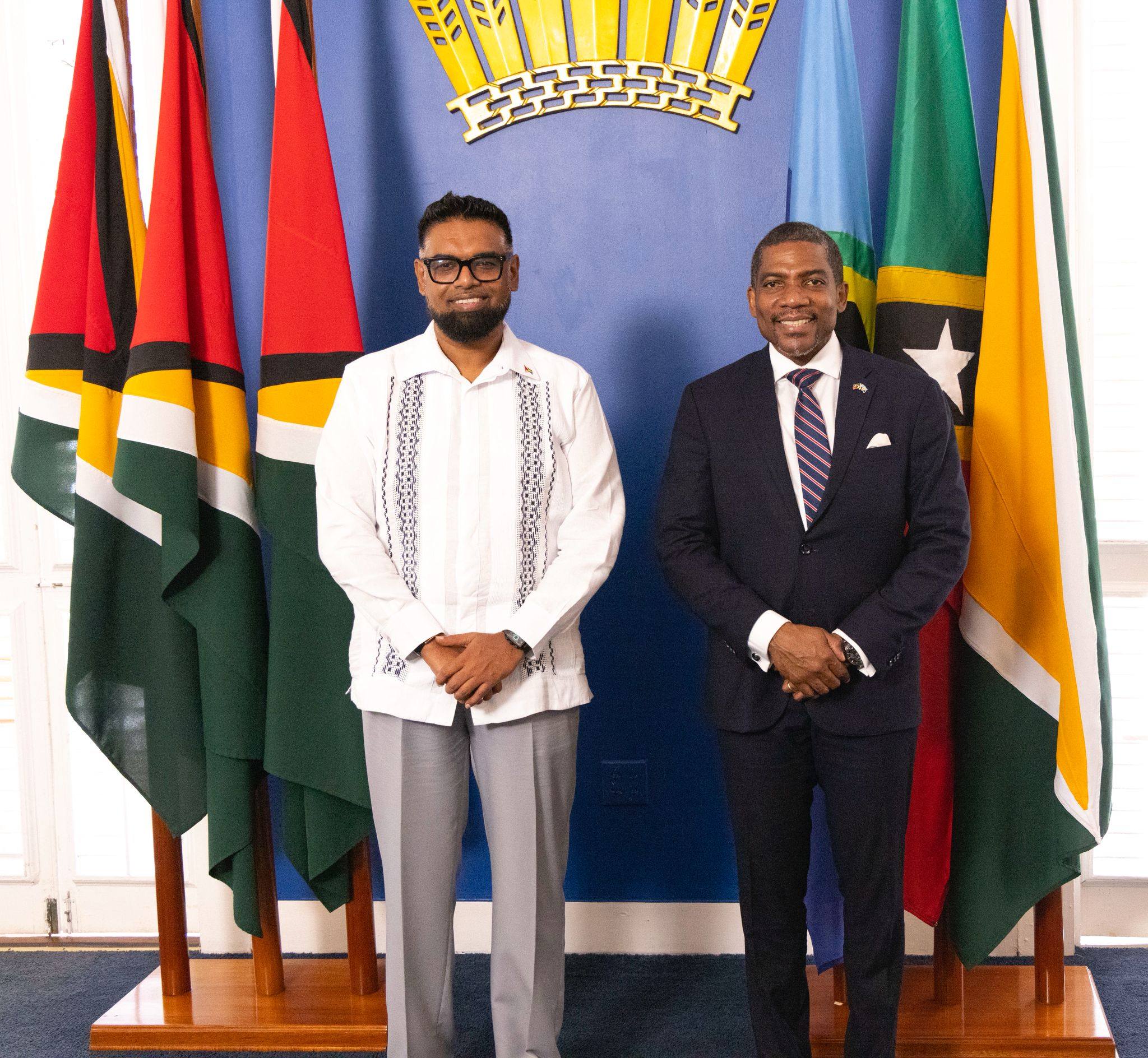News
UN, Humanitarian Organizations Assess Devastating Floods In Maiduguri, Pledge Swift Action

A team of officials from the United Nations and humanitarian organizations has visited Maiduguri to assess the devastating floods ravaging the area.
Led by UN Resident and Humanitarian Coordinator in Nigeria, Mohamed Fall, the team met with affected residents, government officials, and Borno State Governor, Professor Babagana Zulum.
The delegation aimed to assess the damage and outline immediate support measures for the displaced families, including provision of food, clean water, sanitation facilities, and shelter.
Fall described the situation as a “crisis within a crisis,” with flood-affected people facing severe food insecurity and malnutrition. The floods, reported to be the worst in 30 years, have displaced over one million people in and around Maiduguri, with thousands of homes engulfed by rapidly rising waters after a dam burst following torrential rain.
At least 30 people have died, and many more are at risk of hunger and disease. Humanitarian organizations, including Save The Children and the World Food Programme, have warned of the immense damage to water and sanitation services, driving up the risk of cholera and other water- and vector-borne diseases.
Read Also
UN Releases $8 Million to Support Flood Victims in Maiduguri, Nigeria
The disaster is expected to increase the risk of food insecurity, particularly in the vulnerable northeast. The National Emergency Management Agency (NEMA) has confirmed that rescue operations are ongoing, with efforts to reach trapped families and provide aid.
The delegation’s swift action pledge aims to alleviate the suffering of displaced families and address the humanitarian crisis unfolding in Maiduguri.
News
CARICOM Chair Engages Guyana in Fresh Push for Regional Integration

CARICOM Chair Engages Guyana in Fresh Push for Regional Integration
Chairman of the Caribbean Community (CARICOM), Dr. Terrance Drew, has intensified diplomatic consultations ahead of the 50th Regular Meeting of the Conference of Heads of Government, with a high-level visit to Guyana over the weekend.
Dr. Drew, who is also Prime Minister of St. Kitts and Nevis, met with President Dr. Irfaan Ali at the State House in Georgetown on Saturday as part of efforts to consolidate regional consensus before the summit scheduled for February 24 to 27 in St. Kitts and Nevis.
Speaking after the closed-door discussions, Dr. Drew described the engagement as “fruitful,” noting that deliberations centred on strengthening regional integration and advancing shared priorities within the 15-member bloc.
According to him, CARICOM leaders remain committed to deepening cooperation in critical areas including economic resilience, food security, climate action, security collaboration and trade facilitation.
The Guyanese leader, Dr. Ali, was joined by senior government officials and representatives of the Guyana Defence Force during the meeting, underscoring the strategic importance of the talks as regional leaders prepare to chart a common policy direction for the Caribbean Community.
Dr. Drew’s visit to Georgetown forms part of his broader diplomatic outreach since assuming the rotating chairmanship of CARICOM.
In recent weeks, he has held consultations with several Heads of Government across the region to harmonise positions ahead of the milestone 50th meeting.
Among those he has engaged are Prime Minister Dr. Godwin Friday of St. Vincent and the Grenadines, Prime Minister Gaston Browne of Antigua and Barbuda, Prime Minister Kamla Persad-Bissessar of Trinidad and Tobago, Prime Minister Roosevelt Skerrit of Dominica, Prime Minister Dickon Mitchell of Grenada, Prime Minister Philip Davis of The Bahamas, Prime Minister Andrew Holness of Jamaica, and Prime Minister Mia Mottley of Barbados.
The 50th Regular Meeting of the Conference of Heads of Government is expected to review progress on the CARICOM Single Market and Economy (CSME), regional security cooperation, sustainable development strategies and the bloc’s collective response to global economic pressures.
The summit in St. Kitts and Nevis is also expected to set the tone for the Community’s policy direction in 2026, with leaders anticipated to adopt key resolutions aimed at accelerating regional integration and strengthening institutional coordination across member states.
News
UK Court Hears Recordings in Diezani Bribery Trial

UK Court Hears Recordings in Diezani Bribery Trial
A UK court has heard secretly recorded conversations in which a former Nigerian Minister of Petroleum Resources, Diezani Alison-Madueke, allegedly confronted two oil businessmen accused of bankrolling her luxury lifestyle in exchange for lucrative contracts.
At Southwark Crown Court in London, prosecutors played audio files recovered from a Samsung phone seized during Alison-Madueke’s arrest in 2015.
The recordings, made in 2014, captured conversations between the 65-year-old former minister and oil magnates Olajide Omokore and Kolawole Aluko.
Alison-Madueke denies five counts of accepting bribes and one count of conspiracy to commit bribery.
Prosecutors allege she was provided with “a life of luxury” in the United Kingdom by individuals seeking favourable oil contracts from the Nigerian government during her tenure as petroleum minister between 2010 and 2015.
Omokore and Aluko are not standing trial, but are said to have paid bribes during that period.
In one recording from April 2014, Alison-Madueke was heard confronting Omokore over claims that his wife was spreading information that could implicate her.
“We who are managing the thing have kept quiet… while people like your wife are busy singing all over the place,” she said, adding: “I do not react well to being blackmailed.”
A second recording, made a month later during a meeting with Aluko, captured the former minister criticising what she described as his “lavish, lascivious lifestyle,” warning it was drawing unwanted public attention.
She referenced his associations with high-profile figures, including British supermodel Naomi Campbell, cautioning that such displays were ill-timed.
“As far as everybody’s concerned, you’re a playboy,” she said, warning that intelligence agencies could begin monitoring him because of his conduct and asset acquisitions.
In the audio played to the court, Alison-Madueke expressed anger over suggestions that either man possessed damaging information about her.
“I will be happy to escort all of you to jail along with myself,” she declared. “When it comes to that, I will come out and tell the Nigerian people this is what happened.”
Aluko was heard denying mentioning her name and told the former minister he had placed materials in a safety deposit box that could “save me from jail,” describing himself as flawed but “loyal like a dog.”
Defence counsel previously told the court that Alison-Madueke neither requested nor received financial benefits from the businessmen, noting that they have not been charged or extradited in the matter.
Also standing trial is oil executive Olatimbo Ayinde, 54, who denies one count of bribery relating to Alison-Madueke and another of bribing a foreign public official.
Alison-Madueke’s brother, Doye Agama, 69, a former bishop, also denies a charge of conspiracy to commit bribery.
The trial continues.
News
Senegal Moves to Raise Jail Term for Same-Sex Relations to 10 Years

Senegal Moves to Raise Jail Term for Same-Sex Relations to 10 Years
Senegal’s Prime Minister, Ousmane Sonko, has introduced a bill seeking to double the maximum prison sentence for same-sex relations to 10 years, amid a wave of recent arrests under the country’s existing anti-LGBT laws.
The proposed legislation, approved by the cabinet last week and transmitted to parliament on Tuesday, prescribes prison terms ranging from five to 10 years for what it describes as “acts against nature,” up from the current one- to five-year penalty.
Addressing lawmakers, Sonko said the maximum punishment would apply where the offence involves a minor.
The draft law also defines any sexual conduct between two people of the same sex as an “act against nature.”
In addition, the bill proposes prison terms of three to seven years for individuals found guilty of promoting or advocating same-sex relations.
It also outlines separate sanctions for those who accuse others of homosexuality without proof.
Convicted persons could face fines of up to 10 million CFA francs (approximately $18,000 or £13,000), according to the prime minister, who noted that the offence would remain classified as a misdemeanour under the revised law.
The move follows heightened enforcement actions. Earlier this month, police detained at least 12 men, including two public figures and a prominent journalist, under anti-LGBT provisions.
Local media reports indicate that about 30 people have been arrested in total this month.
Although no date has yet been announced for parliament to debate and vote on the bill. However, the legislature is controlled by Sonko’s Pastef party.
Several African countries have enacted similar measures in recent years. In September 2025, Burkina Faso’s transitional parliament approved legislation banning homosexual acts, following similar steps taken by Mali in 2024.
In 2023, Uganda passed some of the world’s toughest anti-homosexuality laws, including provisions allowing the death penalty for certain same-sex acts.
-

 News3 days ago
News3 days agoTrump Hails ‘Turnaround for the Ages’ in Record 110-Minute Address
-

 Analysis2 days ago
Analysis2 days agoSavannah Shield and the Security Recalibration of Kwara State
-

 News3 days ago
News3 days agoMexico in Turmoil After CJNG Kingpin Killed in Military Operation
-

 Analysis3 days ago
Analysis3 days agoWho Is After Peter Obi? By Boniface Ihiasota
-

 News2 days ago
News2 days agoCARICOM Chair Engages Guyana in Fresh Push for Regional Integration
-

 News3 days ago
News3 days agoUK Court Hears Recordings in Diezani Bribery Trial

















